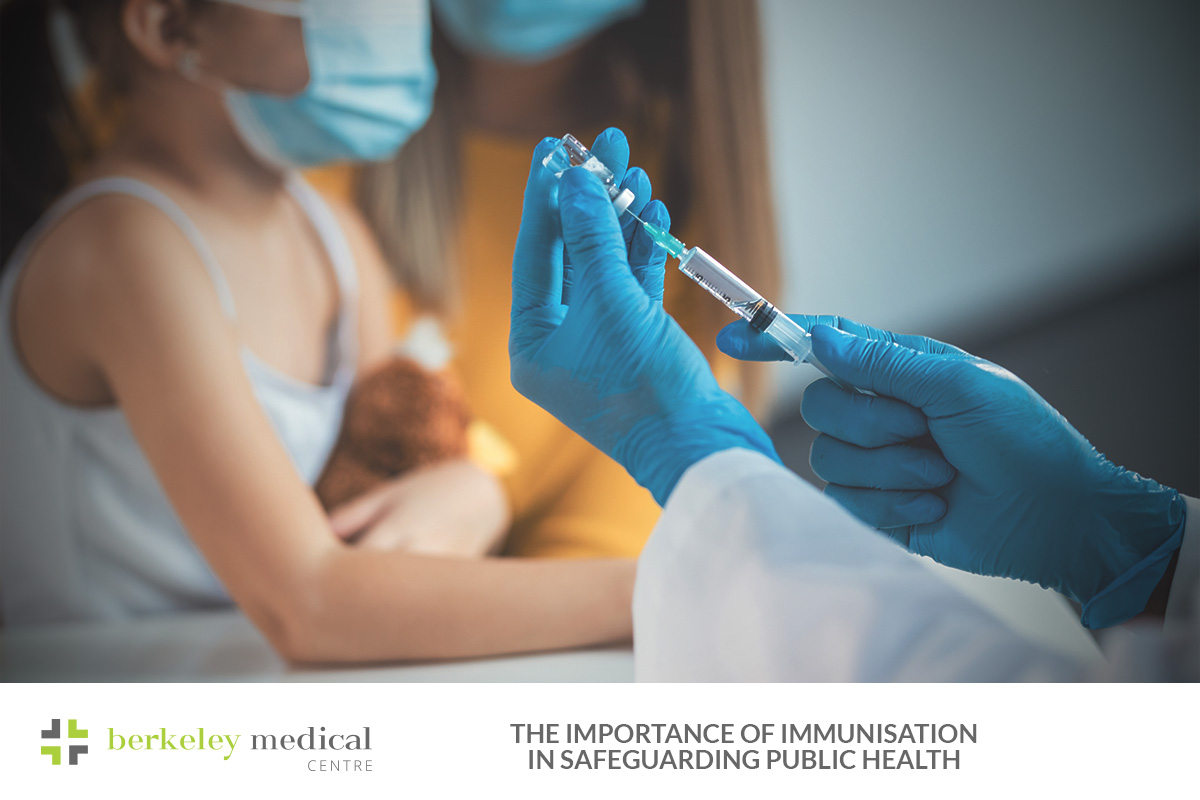Immunisation plays a critical role in protecting individuals and communities from infectious diseases. From infants to the elderly, it is an essential tool in promoting public health, preventing outbreaks, and saving lives. Understanding how it works, the concept of herd immunity, and dispelling common myths about immunisation is crucial for everyone. In this article, we will explore these aspects and the global impact of it’s programs, including the recent example of how COVID-19 was brought under control.
How Immunisation Works: A Simple Explanation
It involves introducing a substance into the body that helps it build resistance to specific infections. This substance often contains weakened or inactive parts of a particular organism (antigen) that trigger an immune response. This response trains the immune system to recognise and fight the disease in the future.
When the immune system encounters the antigen, it identifies it as a foreign invader and produces antibodies to combat it. These antibodies remain in the body, providing immunity against the actual disease if the person is exposed to it later in life.
To summarise, immunisation works by:
- Mimicking the infection: It exposes the immune system to the disease without causing illness.
- Training the immune system: This exposure helps the body learn how to fight the real infection.
- Building immunity: If exposed to the actual disease, the body is ready to respond quickly and effectively.
The Role of Herd Immunity
Herd immunity, also known as community immunity, occurs when a large portion of a population becomes immune to a disease, either through immunisation or previous infections. When enough people are immune, it becomes difficult for the disease to spread, thus protecting those who are not immune, such as newborns or individuals with weakened immune systems.
Immunisation is key to achieving herd immunity without the widespread suffering that comes from natural infections. For example, diseases like measles or polio can spread rapidly in a community if immunisation rates drop. However, when a high percentage of the population is immunised, the spread of these diseases is drastically reduced, protecting the entire community.
Why Herd Immunity Matters:
- Protects vulnerable individuals: Not everyone can be immunised, such as people with certain medical conditions. Herd immunity helps protect these individuals.
- Prevents outbreaks: High immunisation rates make it difficult for diseases to spread, preventing outbreaks and epidemics.
- Saves lives: By reducing the spread of infectious diseases, herd immunity contributes to lower mortality rates.
Addressing Common Misconceptions About Immunisation
Despite the overwhelming evidence supporting the safety and effectiveness of immunisation, misconceptions persist. Addressing these myths is crucial to maintaining public confidence in it’s programs.
Myth 1: Immunisation Causes the Diseases It is Supposed to Prevent
Some people fear that immunisation can give them the disease it is meant to prevent. However, the substances used contain weakened or inactivated parts of the virus or bacteria, making it impossible for them to cause the disease. For example, the flu shot cannot give you the flu, but it can help your body build immunity against it.
Myth 2: Natural Immunity is Better Than Immunisation-Induced Immunity
While it is true that natural infection can provide immunity, it often comes at a significant cost. Many diseases can cause severe complications or even death. Immunisation provides a safer way to gain immunity without the risks associated with the actual disease.
Myth 3: Immunisation is Not Safe
The substances used in immunisation undergo rigorous testing before they are approved for use. They are continuously monitored for safety and effectiveness. Side effects, if they occur, are usually mild and temporary. Serious side effects are exceedingly rare, and the benefits of immunisation far outweigh the risks.
Myth 4: Immunisation Causes Autism
This misconception originated from a study published in 1998, which has since been thoroughly discredited and retracted. Numerous studies have shown no link between immunisation and autism. Unfortunately, this myth persists, leading to hesitancy in some communities.
The Global Impact of Immunisation Programs
programs have had a profound impact on global health. They have led to the eradication, elimination, or control of many infectious diseases that once caused widespread illness and death. The recent COVID-19 pandemic serves as a powerful example of how immunisation can help control and eventually end a global health crisis.
Eradication of Smallpox
One of the greatest achievements in public health is the eradication of smallpox. This deadly disease, which killed millions throughout history, was declared eradicated in 1980 after a successful global immunisation campaign. The eradication of smallpox stands as a testament to the power of immunisation.
Near-Elimination of Polio
Polio is another disease that has been nearly eliminated thanks to immunisation. Once a common cause of paralysis and death, polio cases have decreased by over 99% since 1988, when the Global Polio Eradication Initiative was launched. Today, polio remains endemic in only a few countries, with ongoing efforts to achieve complete eradication.
Control of Measles and Rubella
Immunisation efforts have significantly reduced the incidence of measles and rubella worldwide. In many countries, these diseases are now rare due to high immunisation coverage. However, outbreaks can still occur in areas where rates drop, underscoring the importance of maintaining strong immunisation programs.
The Role of Immunisation in the COVID-19 Pandemic
The COVID-19 pandemic highlighted the importance of rapid and widespread immunisation. The development and distribution of COVID-19 vaccines played a crucial role in controlling the virus and reducing its impact on global health.
Before the introduction of COVID-19 vaccine, the virus caused widespread illness, overwhelmed healthcare systems, and led to millions of deaths worldwide. The global effort to develop and distribute COVID-19 vaccines in record time was a remarkable achievement. As more people received their shots, the rates of severe illness, hospitalisations, and deaths began to decline.
In Australia and many other countries, high immunisation rates helped to reduce the spread of COVID-19, allowing for the easing of restrictions and a return to normalcy. While the virus continues to circulate, ongoing efforts have transformed COVID-19 from a pandemic-level threat to a manageable disease.
Conclusion: The Importance of Staying Immunised
Immunisation is one of the most effective tools we have to protect ourselves, our families, and our communities from infectious diseases. It not only prevents illness in individuals but also contributes to the broader goal of public health by achieving herd immunity and preventing outbreaks.
Staying informed and addressing misconceptions about immunisation are vital steps in ensuring that everyone can benefit from the protection it offers. As we shave seen through the eradication of smallpox, the near-elimination of polio, and the control of COVID-19, the impact of these programs on global health cannot be overstated.
By keeping up with immunisation, we can continue to protect our communities, prevent the resurgence of dangerous diseases, and save lives.
Book your Jab with Care Plan with our General Practitioners today!
Appointments Available on Hotdoc as well!








This post gave me a lot to think about, thank you